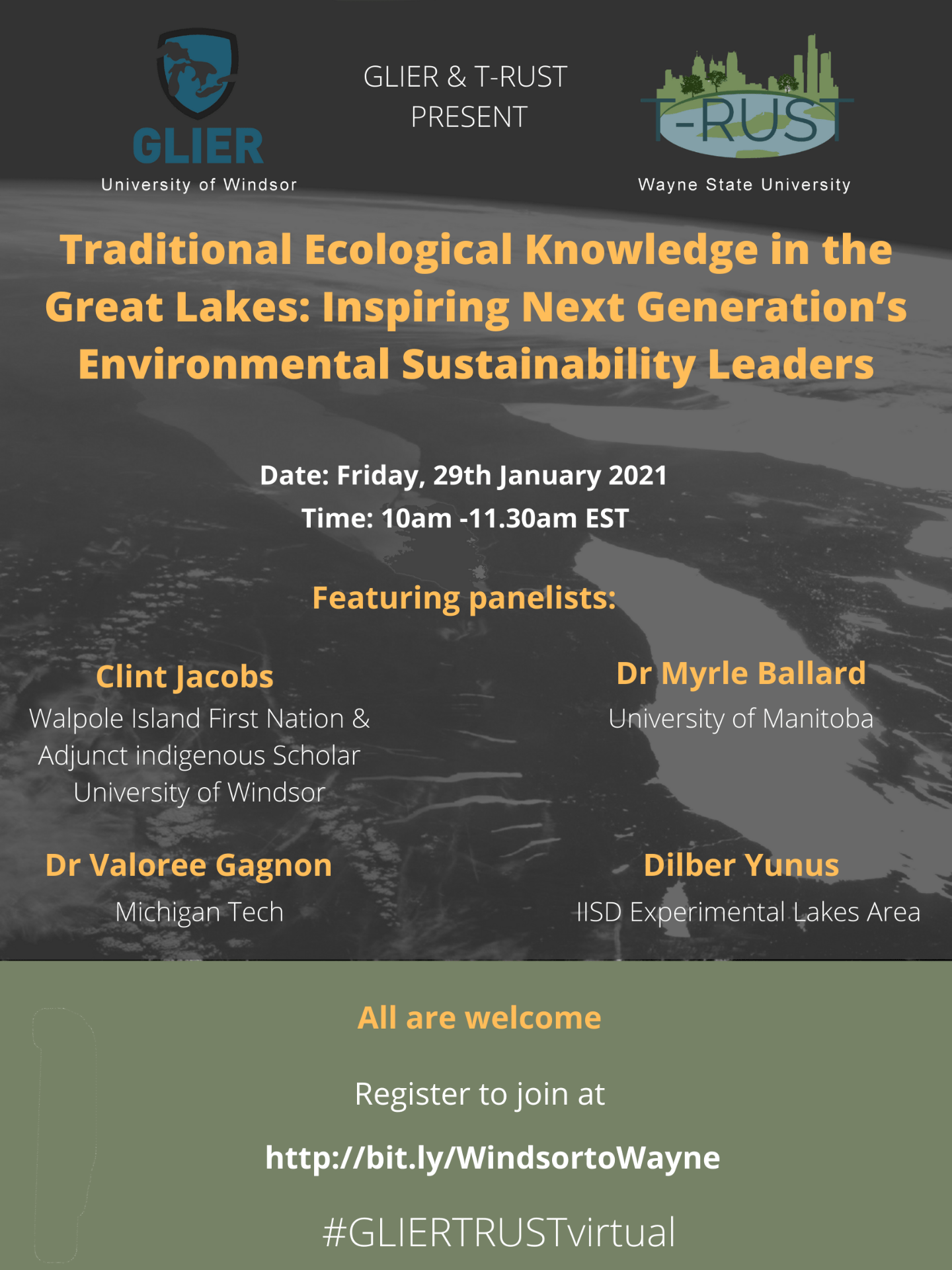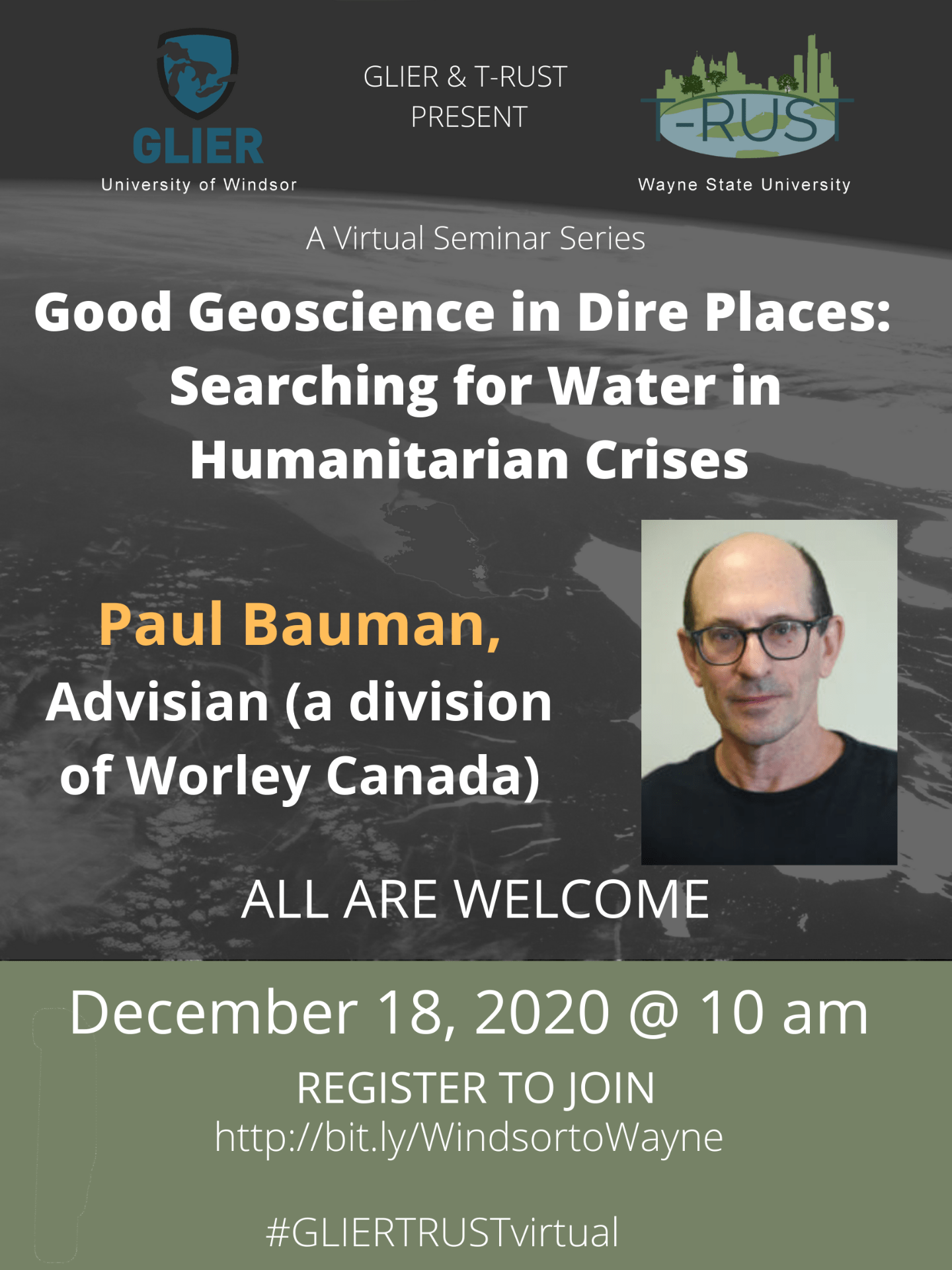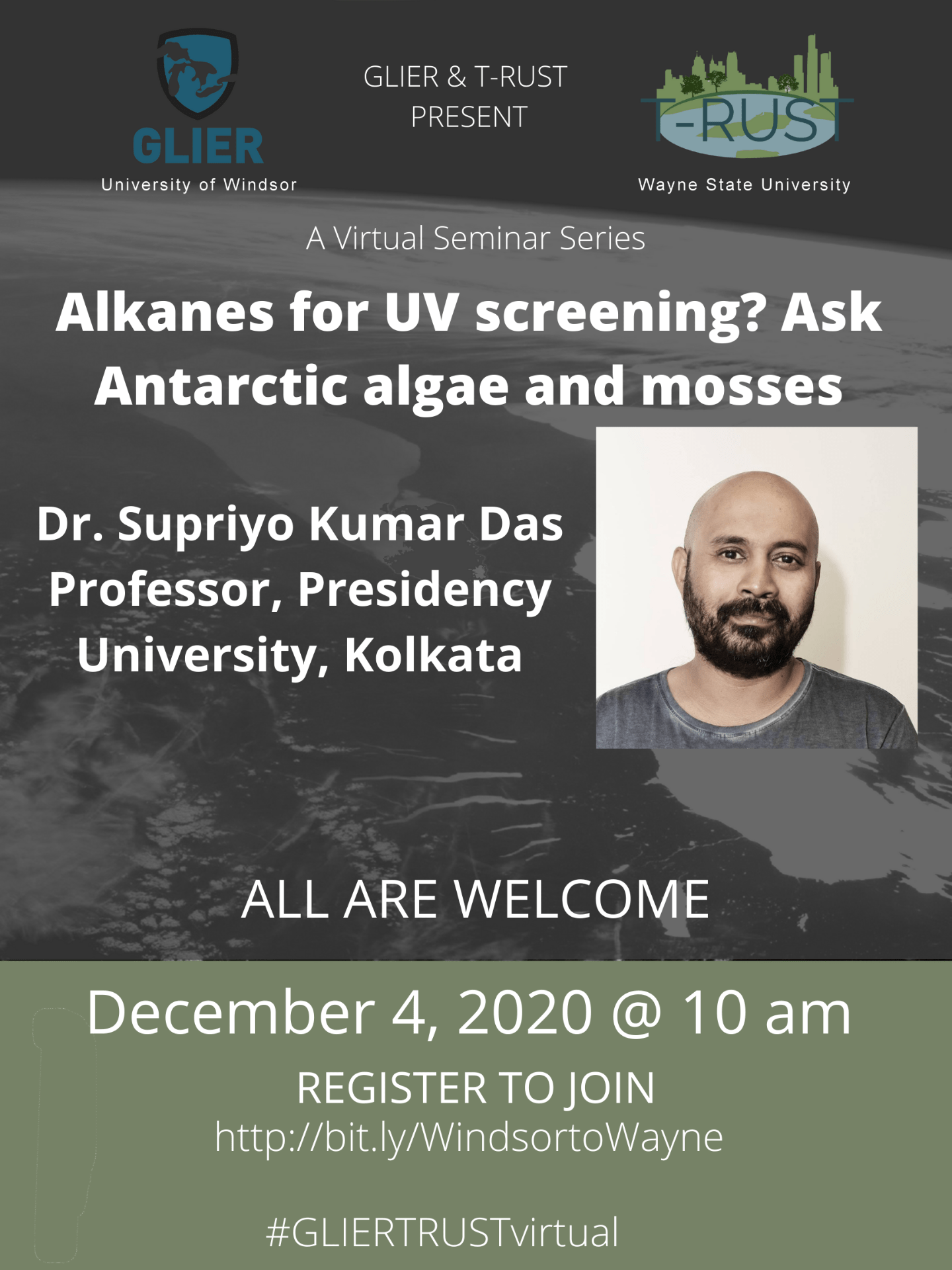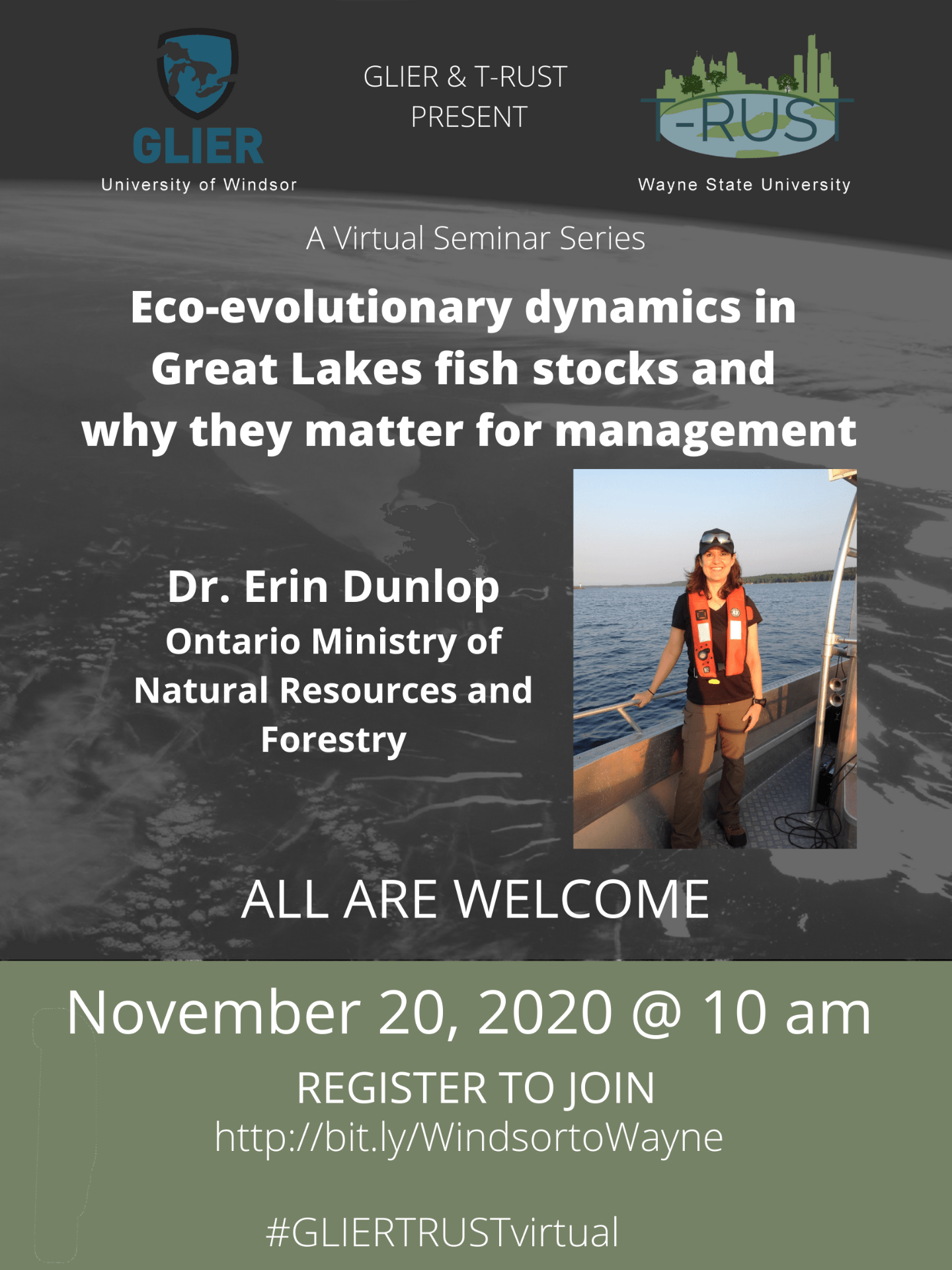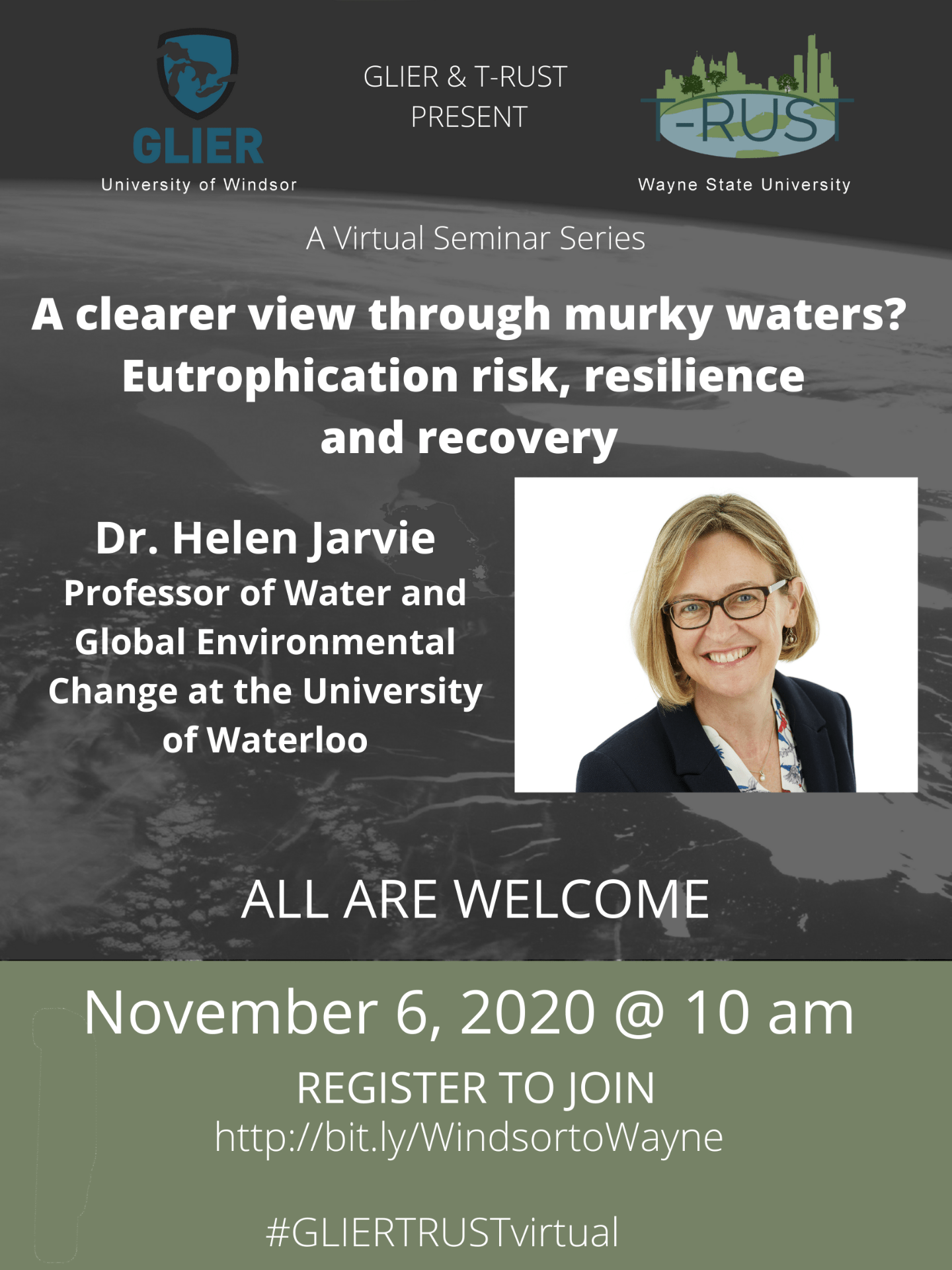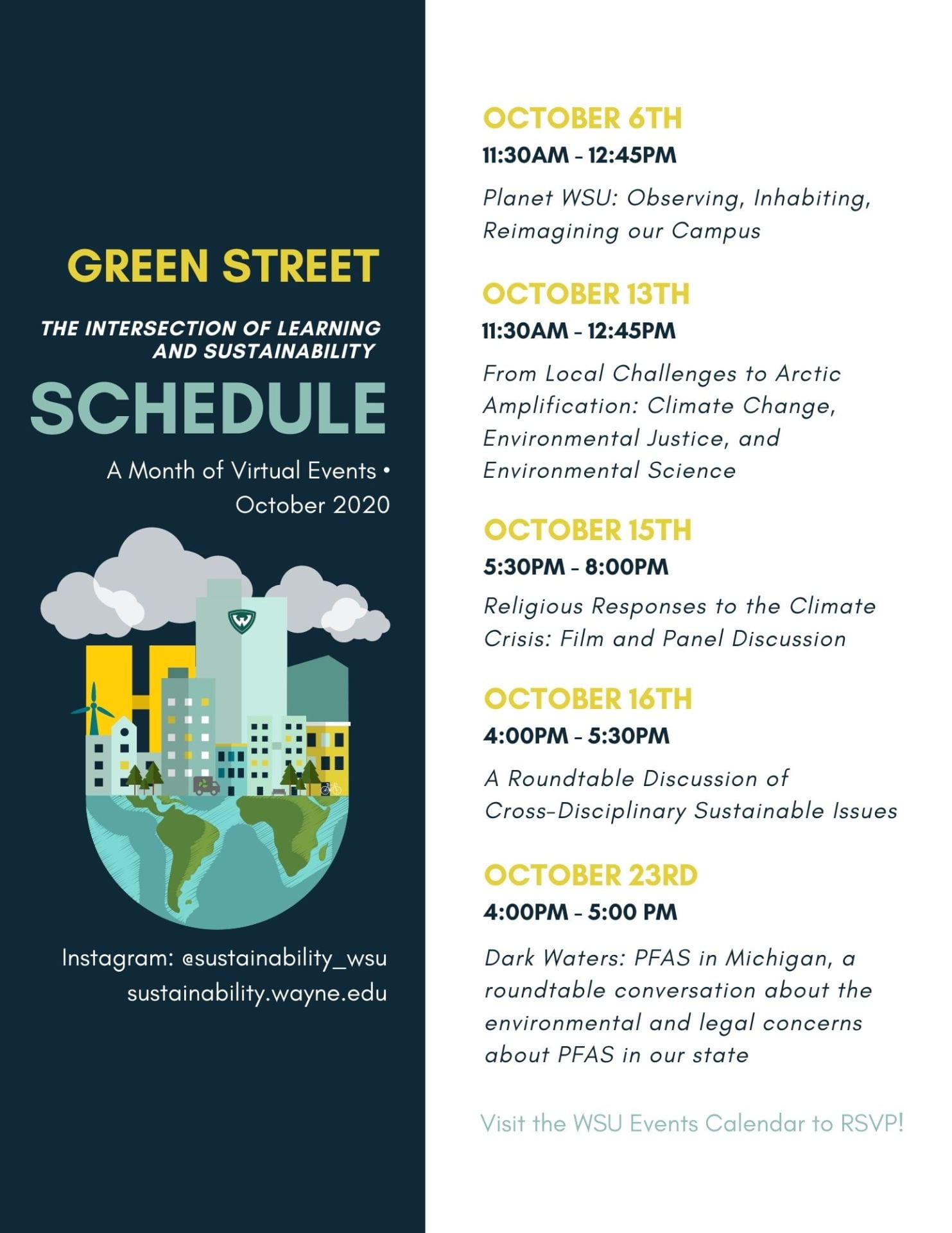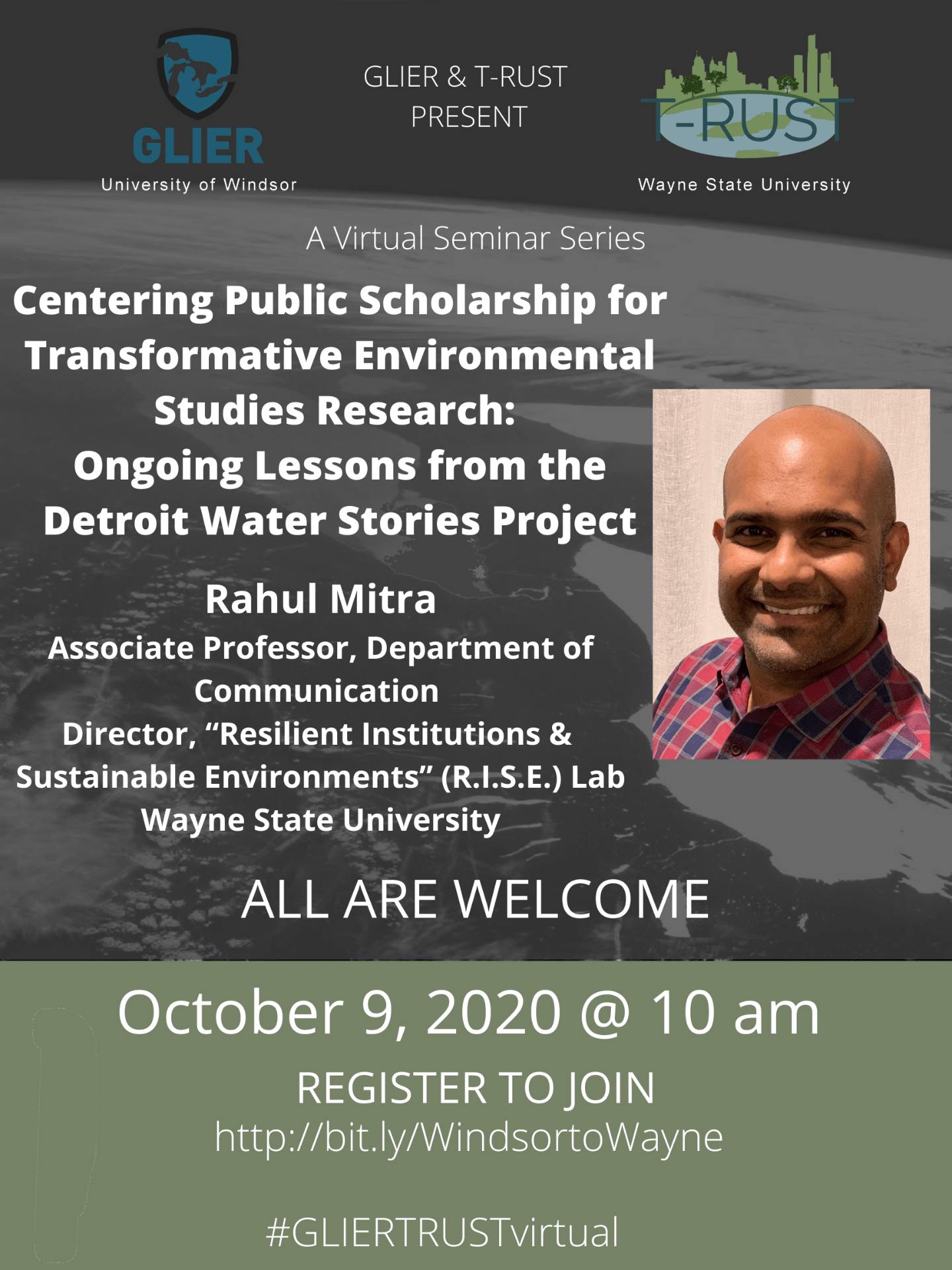This is part of an ongoing collaborative, student-led seminar series hosted by T-RUST (Transformative Research in Urban Sustainability Training) at WSU and GLIER (Great Lakes Institute for Environmental Research) at the University of Windsor. The seminar series is titled Transformative Change in Environmental Sustainability and occurs biweekly on Fridays at 10am.
Title: Centering Public Scholarship for Transformative Environmental Studies Research: Ongoing Lessons from the Detroit Water Stories Project
Speaker: Dr. Rahul Mitra, Wayne State University
When: Friday, October 9, 10am
Where: Virtually on Zoom, register here: http://bit.ly/WindsortoWayne. The Zoom link will be sent to the email used for registration two days before the seminar.
Abstract: Perhaps in no other field of study is it more vital for scholars to engage and partner with local communities and lay audiences than in Environmental Studies. Nevertheless, public scholarship remains devalued or grossly misunderstood, or practiced as an after-thought to the “serious” work of research. Yet, research, I argue, can only be truly transformative and consequential when it takes into account the concerns and lived experiences of impacted stakeholders. In this talk, I draw from ongoing lessons from a multi-year collaborative ethnography and oral history project, to outline new ways of approaching public scholarship. The Detroit Water Stories project gathers, shares, and analyzes stories of water insecurity and resilience from key stakeholders involved in the city’s ongoing water affordability crisis. In this talk, I review three critical communicative principles—listen, collaborate and amplify—to actualize what Monica Lewis Patrick of We The People of Detroit terms “deputization.” The model of deputized scholarship I advance in this talk is especially geared toward “wicked problems” that demand our attention to complex and overlapping social, structural and environmental issues. It is a grassroots centered approach to scholarship that blends research, service learning and community engagement, blurring boundaries between public and “basic” scholarship.
Rahul Mitra (PhD, Purdue University) is an Associate Professor at Wayne State University, whose research is at the intersection of organizational and environmental communication, focusing on environmental organizing, sustainability and corporate social responsibility, and meaningful work discourses. He is a critical-interpretive scholar, and uses primarily qualitative methods, such as ethnography, interviews, focus groups, discourse analysis, and arts-based research. At WSU, he directs the Resilient Institutions & Sustainable Environments (RISE) Lab, and his research has appeared in numerous peer-reviewed publications such as Environmental Communication, Management Communication Quarterly, Human Relations, Communication Theory, Public Relations Review, and Journal of Business Ethics. Learn more about Dr. Mitra and his work on his website www.rahulmitraphd.com and at www.detroitwaterstories.com
 Catch Up With T-RUST
Catch Up With T-RUST